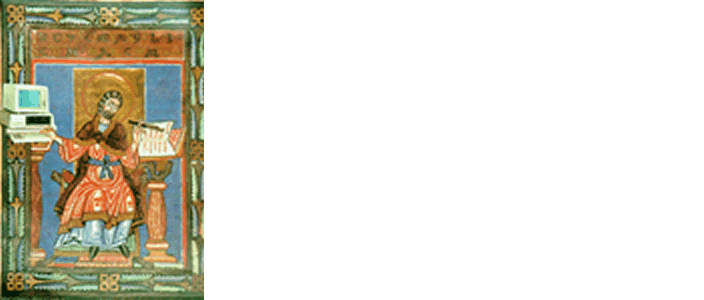 |
|
| |
| Exegesis |
| |
| |
|
Source Criticism
| |

|
Definition
|
- Source
criticism is the study of the different components of a literary
text. It is assumed that the biblical texts are composite
works, and that their components originated in different historical
periods and exhibit different themes. It is also assumed
that, in antiquity, authors were not worried about copyright privileges;
sources were never footnoted or otherwise acknowledged. Given
these assumptions, the task of the source critic is to filter
out the various ideological strains, to locate these in their
historical settings, and to evaluate the meaning of the complete
text in light of the results.

| |

|
Method
|
- To discern the discrete sources of a text, apply these three steps to it:
- Search for textual anomalies (irregularities):
- Thematic inconsistency - does the main theme or tone of the text change suddenly?
- Repetition - do you suddenly find yourself reading another
version of the previous story, one that perhaps contradicts
something in the first account? Look for
duplicate stories, overlapping time references, unnecessarily
repeated narrative introductions ("X said...").
- Digression - does some explanatory comment or story interrupt your main text?
- Different vocabulary or style - does the text include certain words, expressions and idioms characteristic of a certain group’s perspective? Does the text shift "persons" (e.g., from narrative third person [they did X] to second person address [you have done X])?
-
- Isolate the anomaly from the surrounding text. If you have found a repetition, it may be helpful to lay the accounts out side-by-side, so that you can see the differences and similarities more easily.
-
- Discern and list the themes important to the anomalous passage and to the surrounding text.
-
- A
source critic would then integrate these results with his/her
knowledge of Israelite history and literary production, in order
to discern the date and meaning of each passage. You
will not need to do this step; rather, this information will be
provided for you as your starting point.

| |

|
Bibliography
|
- Method
 Habel, Norman C. Literary Criticism of the
Old Testament. Philadelphia: Fortress, 1971.
Habel, Norman C. Literary Criticism of the
Old Testament. Philadelphia: Fortress, 1971.
-
- Applications
- Brodie,
Thomas L. The Quest for the Origin of John's
Gospel: A Source-Oriented Approach. New York:
Oxford University Press, 1995.
-
- Cassuto,
U. The Documentary Hypothesis and the Composition
of the Pentateuch. Jerusalem, 1961.
-
- Dupont,
J. The Sources of Acts. London,
1964.
-
- Kloppenburg,
J. On the Formation of Q. Philadelphia:
Fortress, 1987.
-
- Neirynck,
F. The Minor Agreements of Matthew and Luke
against Mark, BETL 37. Leuven: Leuven University
Press, 1974.
-
 Wellhausen, Julius. Prolegomena to the History
of Ancient Israel. Cleveland: World, 1961;
original 1957.
Wellhausen, Julius. Prolegomena to the History
of Ancient Israel. Cleveland: World, 1961;
original 1957.
|
|
| |
|
|
|